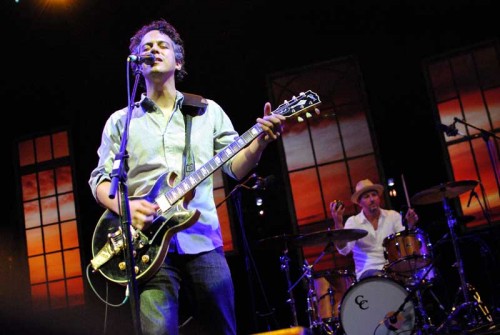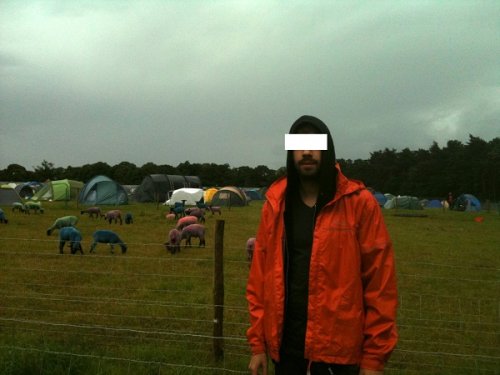(Editor’s Note: This piece appears on The Bowery Presents The House List. Check it out here)
One day last winter I discovered White Denim’s Last Day of Summer. I took to it immediately. It compelled me toward multiple replays and consumed my ears’ desires. But I felt a strange sense of guilt about only listening to this one band and a single album
for three straight months. What is it that made Last Day of Summerso appealing? Last night, at the second night of White Denim’s back-to-back stint at Brooklyn Bowl, I found myself revisiting this question, but on a broader scale: What is it that makes White Denim, live, so immensely enjoyable?
The facts of the band seem rather unremarkable: four guys from Austin, Texas, whose Wikipedia page reads like a grocery list of genres (dub, progressive rock, jazz). But, just as regional affiliation doesn’t explain much anymore (really, most bands are from the Internet), neither does genre name-checking. So I’ll spare you the use of cognitive shortcuts in the form of one-word musical-style descriptions. Instead, I’ll say that listening to White Denim live, I got the feeling they could do just about anything they want to musically. Not by means of programmed electronic wizardry or weird synthesizers, but by technical instrumentation and cunning. They could burst into an extended jam, as they did on “Drug,” or play close to the studio version, like their rendition of “Tony Fatti.”
Clear proof of their invincibility, for me, came late into the show, during a moment when lead singer and guitarist James Petralli came halfway across the stage to briefly confer with lead guitarist Austin Jenkins. Bassist Steve Terebecki and drummer Joshua Block kept plugging away, staying locked into a groove, punctuated by round bass notes. But at the end of the guitarists’ exchange, after whatever needed to be said was said, they parted and, looking over in separate directions, jumped right back into the rhythm, seamlessly. It was the kind of high-wire act where the audience is rapt by the danger while the performers calmly dazzle with their abilities—a tense moment that makes White Denim not your average jam band or any other kind. They are breathtakingly skilled, melodically sweet and deft to the point of fault. They are indescribably good and you’re lucky to have another chance to see them.
Photo courtesy of Jeremy Ross | jeremypross.com





